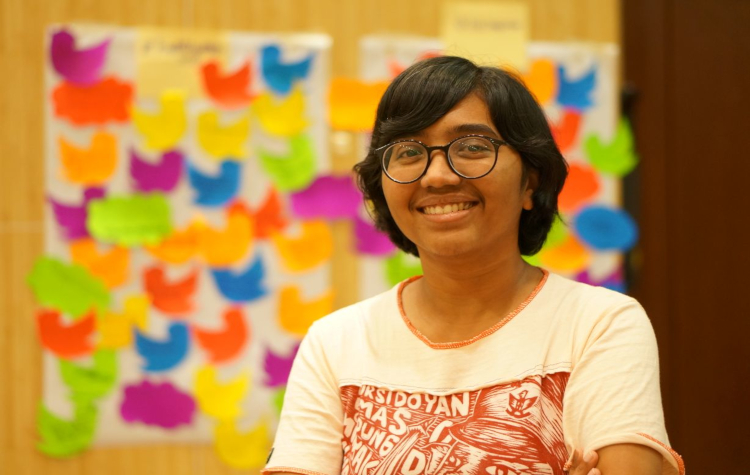For this month’s e-newsletter, FORUM-ASIA talked to Asfinawati, one of the newly elected Executive Committee Members of FORUM-ASIA and the Executive Director of the Indonesia Legal Aid Foundation (YLBHI), a member of FORUM-ASIA in Indonesia. As a human rights defender, Asfinawati shared with us her experiences working for the justice of survivors of human rights violations, and the obstacles human rights movement face in Indonesia.

How did you become involved with human rights? And how did you become involved with FORUM-ASIA?
I became a volunteer at Jakarta Legal Aid when I was a college student. A year later, I joined the Legal Aid Institute (LBH) Jakarta. The more I got involved in the cases, the more I learnt that existing laws would never be enough to reclaim rights. That was the moment when I started realising how important human rights work is and started exploring it in detail.
In 2017, I was elected as the chairperson of the Indonesia Legal Aid Foundation (YLBHI). YLBHI has been a member of FORUM-ASIA since the beginning as it was part of the founding meeting of FORUM-ASIA 26 years ago! When I was at LBH Jakarta I was part of some regional meetings and advocacy work including advocacy on ASEAN Charter. I got to know FORUM-ASIA through their advocacy at that time.
What motivated you to become involved? And has that motivation changed over the years?
Survivors that I have met during advocacy work have always inspired me. That was a big motivation for me and a driving force to continue my work. Many of them have the opportunity to leave the work they do, but they don’t bow down. I also learnt so many things from them including their persistency and struggle. Of course, my motivation to continue working has seen ups and downs over the years. The strategy we use for advocacy and building social movements can make one sceptical, but the stories of these survivors keep you going. Over the course of time, when my understanding of human rights improved, I started to trust human rights instruments as comprehensive and peace keeping mechanisms.
Please tell us one of the most inspiring moments for you in your work in the past?
It happened in my first year when I was a volunteer for LBH Jakarta. I was working on a labour rights case. Hundreds of workers were fired by a company because they decided to set up a labour union. We supported their right to have a union. In one of the meetings with them, one of the leaders said to me ‘Sorry, I should have taken the offer from the company (, my child has not had milk to drink for months.’ That moment still gives me goose bumps and motivation for my advocacy work. It also makes me think about many things: the reality of victims meeting; the ideality of the defender; how we should work with justice; and how important the survival of the victims is.
What do you experience as the main challenges as someone working on human rights? And how do you deal with such obstacles in your work?
Stigma from society particularly when we are advocating about sensitive issues (in Indonesia) like freedom of religion or belief is the main challenge. The obstacles are not so much in private life but when our credibility is being questioned, then it affects the advocacy work. We need to develop strong arguments for the protection of human rights which hits the right button! When our credibility is questioned and when people ask ‘why do you only work for human rights of other religions and not of Islam?’, we can show that human rights organisation and the United Nations also work on religious freedom for Muslims, for example in Palestine, and has called out human rights violations there. Human rights are for all religions and people of all kinds – they are universal!
If you could give a message to the new generation of people working on human rights or development, what would it be?
Always learn from the victims/survivors because they are the ones who have witnessed the violations and know what they need the most. Be careful of being misled by technicalities. Focus on the best strategy and do not lose hope in your fight to get justice for victims/people.


